
Work Experience
Uncover my journey and the skills gained in work-like settings
Discovering Healthcare Careers (DHC)
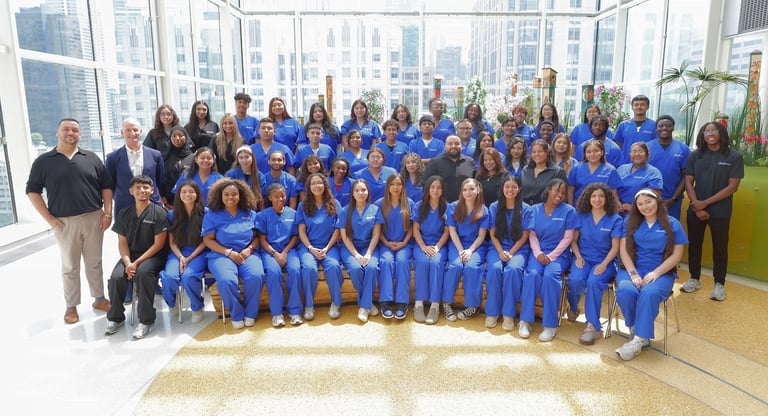

Discovering Healthcare Career is a program in Ann & Robert H. Lurie Children’s Hospital of Chicago, were rising seniors and rising colledge freshmen across Chicago get to shadow and learn about various healthcare careers.
Out of the 300+ people who applied for DHC, I was one of the 50 selected to participate in the program in the summer of 2025. My experience at DHC so far has been something I will never forget. For quite a while now, I knew that I wanted to be a part of the medical field in the future, as I had no other paths in mind. My knowledge of the various professions in the medical field was limited, but with the little information I did have, I knew I wanted to be a surgeon. Something that really stuck with me is how my lack of knowledge in medical professions was immediately blown away, even before the program officially began. On June 20th, I entered the hospital for the first time for our orientation. When I was given my schedule for the next six weeks, I was shocked by the number of different medical fields I saw on the paper. There were so many I didn’t even know existed, and from there I could confidently say there was more to the medical field than just everyday doctors, nurses, and surgeons.
Each week, every student was assigned a different department to shadow. As for my departments, I shadowed respiratory therapy, ambulatory, healthcare tech, PICU, OR/surgical services, and heart center. One thing I really appreciate in this program is how the people I shadow are always eager to answer my questions and build off ideas I input. During week 5, I shadowed a PACU nurse for a day. Even while tending to a patient who had just received their heart transplant, she never hesitated to answer my biggest questions. Even now, I’m still fascinated by the potential of artificial hearts, which we had an intriguing discussion about. Another great thing about shadowing is that even when there wasn’t immediately a patient to attend to, or work to be done, the experience was never dull. Ironically, these situations had always resulted in some of the most fun, informative, or memorable conversations. On Friday of week 1, the respiratory therapist I shadowed was on a break momentarily. I’ll never forget the laughter we shared, as we comically discussed the pros and cons of various surgery specialties, after I told him about my interest in those fields. During week 4 in the PICU, I shadowed the floor receptionist for an hour. I initially thought it'd be boring, up until I got to hear about some of the most heartwarming, inspiring, and tragic patient stories which took place on that floor. During slow days in ambulatory and healthcare tech, we talked a lot about college studying tips and medical internship opportunities, which I made sure to take valuable notes on.
I’ve had many takeaways from my shadowing experience, but a major one is that there are many important considerations when choosing what healthcare field is best for you. You can’t really pick one based on just the pay, or if it sounds cool on paper. Instead, it's best to choose one based on your personality, values, and skills. For instance, while shadowing in ambulatory and the PICU, I noticed the recurring need for bonding and communication with young patients. My time at DHC was incredibly valuable as it helped me pinpoint what exactly I should be searching for while choosing a medical career. I knew from the start that I wanted to be a surgeon, but before I shadowed in the OR, I didn’t have any real-life insight to truly know what I was in for in a career like that. I consider week 5 one of the most meaningful, as it highlighted how surgery may be the best medical career path after all. Shadowing in the OR, I saw how the surgeons actively collaborated with one another, keeping their composure while working with focus and precision. These skills all resonate with my personal values, and seeing them utilized in my dream career further motivated me to continuously exercise these skills throughout my day-to-day life. It was also nice to obtain to contact information of the surgeons I shadowed, as I plan to keep in touch with them and expand my networking.
To wrap up our days at DHC, we received presentations from numerous medical professionals at Lurie. I greatly admired our speakers’ dedication to their work and their willingness to share their genuine passion with us. When taking notes, I paid particular attention to the skill sets and day-to-day lives our speakers described, which helped me begin paving my path toward pinpointing a career best suited for me.
On our last day, August 1st, all 50 of us graduated from DHC and received our certificates of completion. Near the end of the ceremony, I was honored to be the sole recipient of the M&M Scholarship. Out of all the scholarships awarded, the M&M Scholarship was the highest level offered, recognizing exceptional participation and engagement.
At times, I still find it hard to fathom that I was chosen to participate in this incredible journey. Words cannot fully express the respect and gratitude I have for the team who made DHC possible. For that, I thank Maria Rivera, Angel Alcazar, Sharon Alvarado, Jose Muñoz, Tavaris Kenny, Selina Varma, Tara Gill, and Joanne Orozco for putting in the effort to give us aspiring medical professionals the best summer experience possible. Throughout DHC, I saw my confidence grow alongside my curiosity. The experience truly emphasized the importance of never hesitating to ask questions. Through the countless inquiries I made, I learned so much about how to best prepare myself for a future in healthcare. I will forever cherish the memories and connections I made at DHC, and I will actively use them to guide me toward the right path.
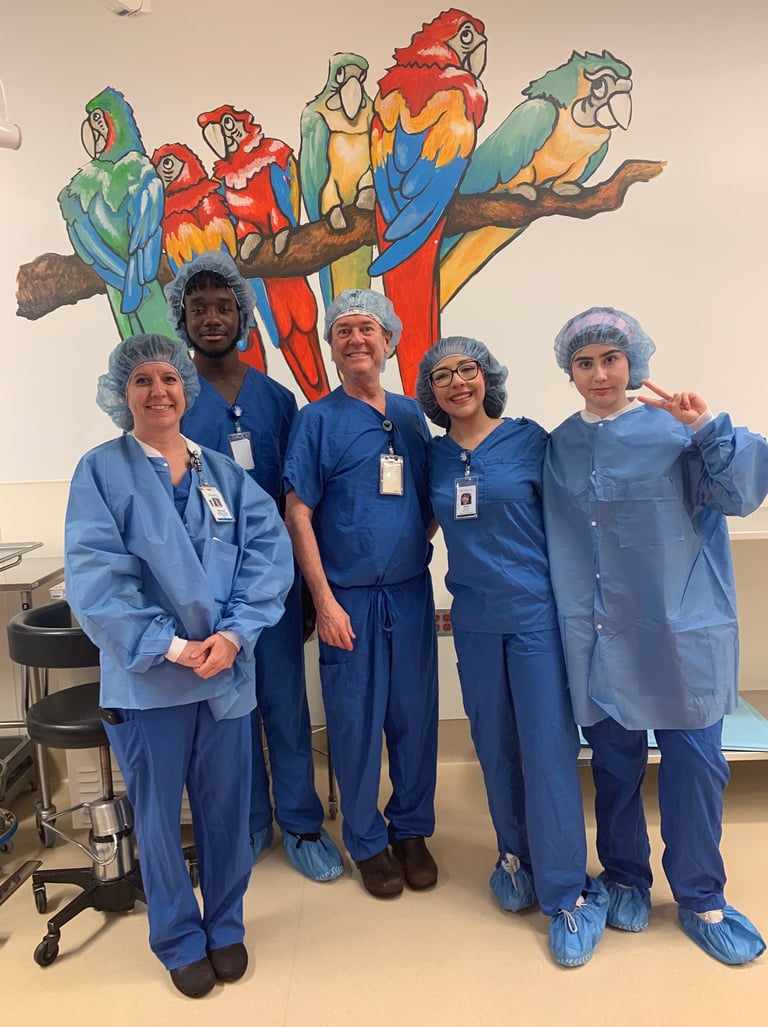

Me shadowing in the OR
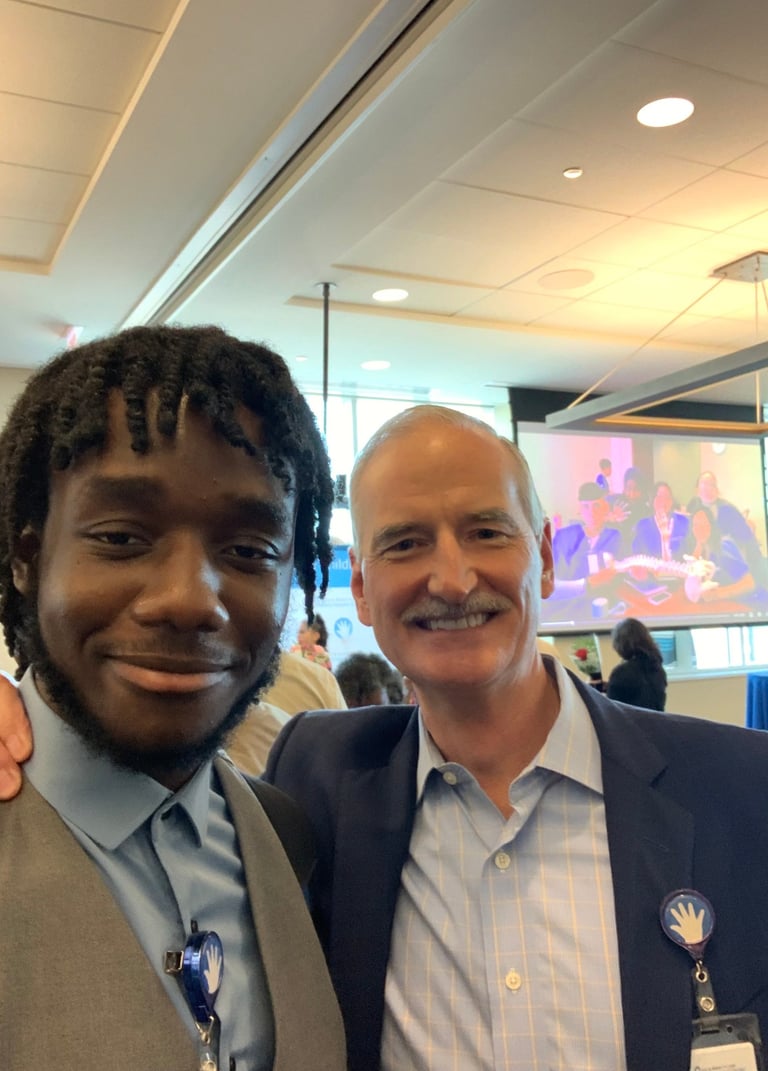

Me with Tom Shanley, the CEO of Lurie Children's Hospital
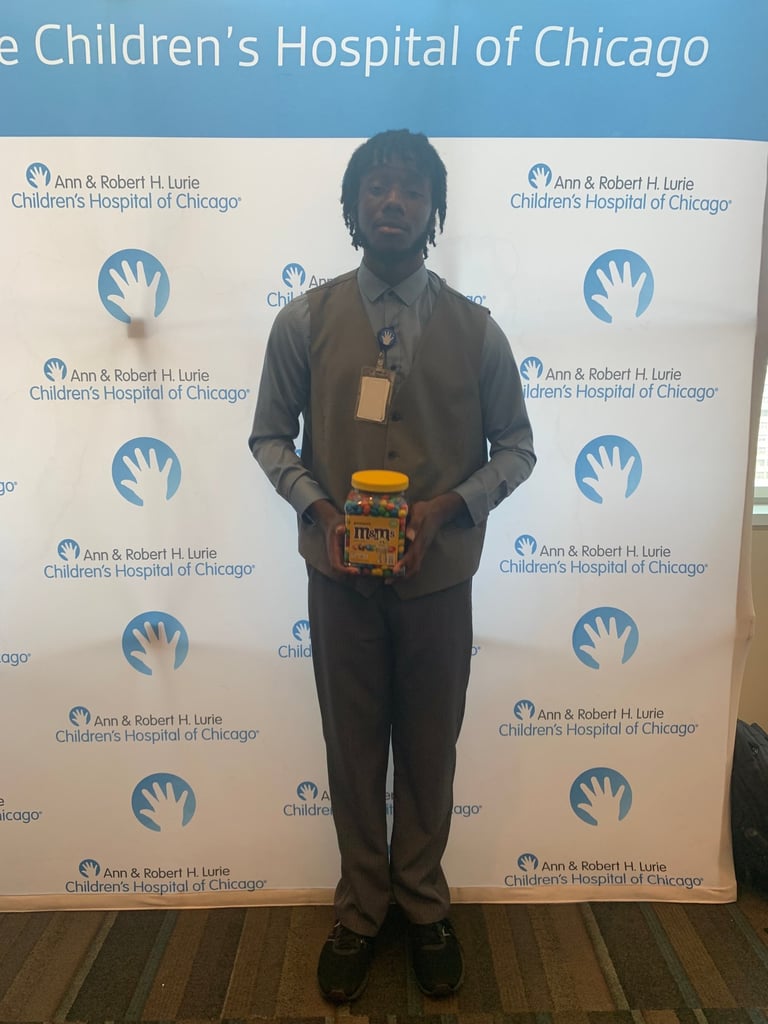

M&M Scholarship Award Winner
Loyola Summer Science Internship
During the summer after sophomore year, I worked at a 6 week Science Internship in Loyola University. To even take part of this opportunity in the first place, I had to have been selected after writing an essay describing my interest in science and why I'd be an ideal candidate. My writing managed to be persuasive enough, and so mid June unfolded one of the most memorable chapters in my life.
Before the internship officially begun, me and the 7 other candidates attended a one week orientation. We started an example research project on circadian rhythms in fruit flies. By Friday, each participant was required to deliver a solo presentation of their findings. My presentation at that time had several flaws, including frequent reliance on my screen and unsteady speaking tempos. Overall, I wasn't proud of my presentation, but I wasn't about to accept to defeat. On that same day, we were informed that we'd have another presentation on the last day of the internship, based on our own individual research labs. I swore to myself that by then, I'd develop the skills and knowledge to deliver a presentation to be proud of.
After orientation week, the Internship officially begun. Everyone was assigned a unique lab dedicated to a specific area of science. As for me, I was allocated to a biology lab studying plant evolution. On my first day, I was introduced to my lab mates, one of them being a grad student from Loyola. His guidance was of great use to me, as he helped familiarize me with the research and my new surrounding. (I won't go too in dept on my study here, though you may refer to my completed presentation slides linked in the Projects page.) It's essential to note that this research didn't just start once I joined, people had already been working in the lab for months. That being said, I believe the first week truly highlighted my ability to adjust to new settings quickly. I was stationed in a legitimate science lab, with equipment I had never seen before, hearing my lab mates using large terms I had never heard of. Sure, it felt quite overwhelming, but my obligation to learn had overridden all feelings of doubt completely. By week two, my acquaintance to the general environment had grown considerably.
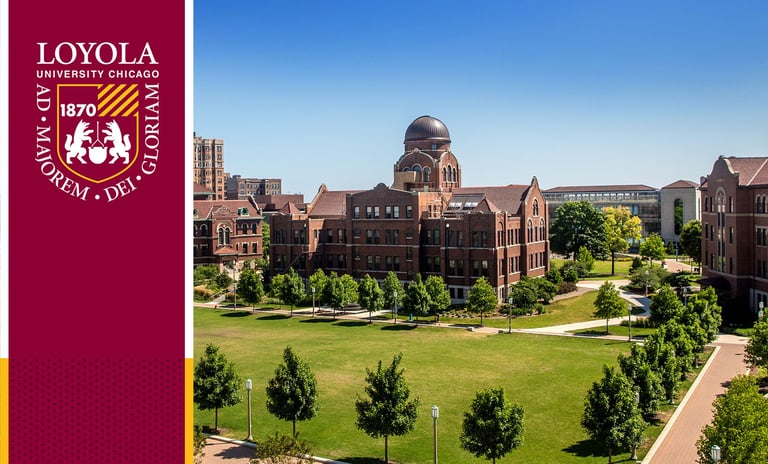

Wasting no time, I made sure I got to work on my slideshow presentation with the limited knowledge I had. Along side this, there were many responsibilities to do around the lab, ranging from simple tasks like nicking seeds to more complex ones, like extracting DNA from bacteria. For the time being, I only did the later while supervised, though I made sure to be very attentive and mindful while doing so, because I knew eventually it would be my duty to perform these solo. By week three, I had developed a consistent routine in plant care, watering the plants in the greenhouse without being ordered. I had a strong work ethic, continuously motivated to make myself useful around the lab. I demonstrated this very clearly too, because during the 2nd half of the internship, I was entrusted to take on more arduous and demanding tasks, like handling the autoclave machine, and transporting materials between labs. At this point, I was even authorized to perform takes that once required supervision, completely independently.
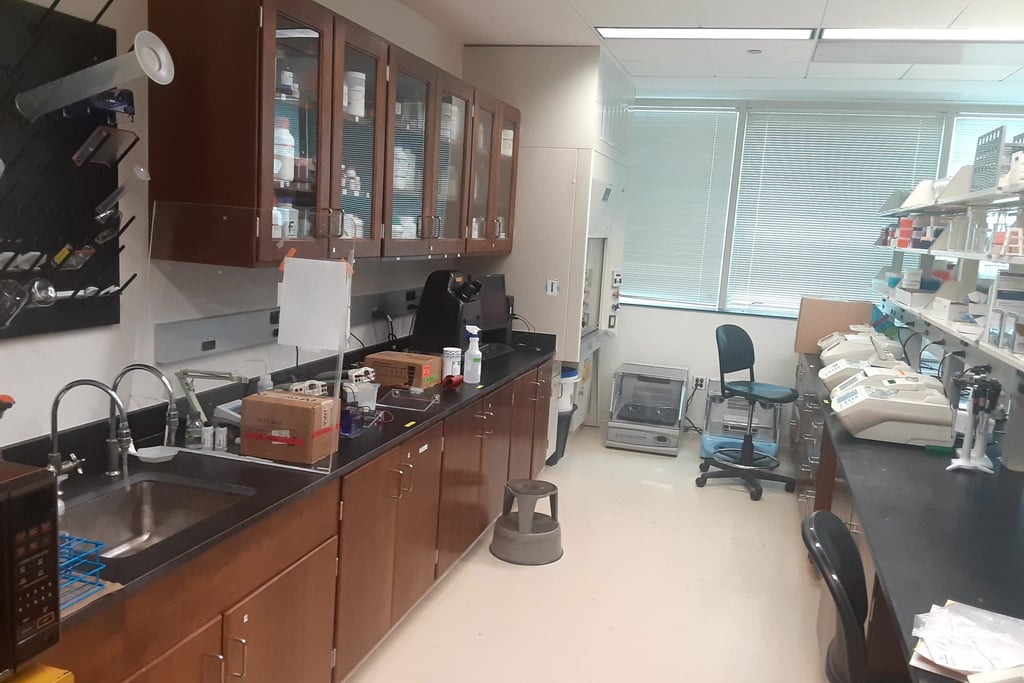

A view of my laboratory
These developments were a significant turning point for me. I was proud of my dedication towards the work and its acknowledgement. I viewed this a huge milestone of my progress, and it fueled my motivation to be the best intern I possibly could even higher. I reflected my passion while making the finishing touches on my slideshow presentation, which I had been progressively recording all my procedures and findings in. During week 5, my lab mates and I had reached the conclusion of our research question, and soon after, my slides were complete.
At this point, I remembered the promise I made to myself 6 weeks ago during orientation. I swore that I'd overcome my ineptitude in delivering solo presentations. With the slideshow done, I had 1 week to prepare. I knew that reviewing the words repeatedly wouldn't suffice, if I wanted truly deliver effective presentation, I had to be fully engaged with both myself and the audience. I reflected on presentations I had in the past, like the one at The 6x3 Project. I had an advantage there, since I wasn't alone, but then I remembered how each of us were able to memorize our lines without referring to a screen: we actively practiced with each other, standing up and consistently relying solely on memory, while only glancing at the screen for a few seconds. Furthermore, since we were heavily enthusiastic about our topic, we could elaborate to a much greater extent of what's shown on screen. For several days I applied these methods while practicing in front of my parents and lab mates. I was mindful of my speaking duration for each slide, considering the required 10 minute minimum imposed. I purposely reduced the amount of text on screen, as it not only made it clearer for the audience, but also gave me an incentive to articulate thoughtful, engaging explanations. I figured it would keep the presentation animated, as opposed to sounding like a text to speech robot.
On the final day, I was called upon first among my peers to deliver my presentation, the culmination of the 6 weeks spent as an intern. There was an abundance of professors, grad students and others present in the audience. As I began my introduction, I felt a wave of anxiety. I acknowledged this quickly, so I started slowing the paste of my speaking moderately. I focused my vision towards the audience, but just slightly above their heads to maintain their attention. My initial apprehension diminished as I steadily spoke more and more vigorously as I explained my slides, I knew what I saying, and I genuinely cared about the heart of the matter. All the information was ingrained in my brain from my commitment towards this internship, and the only times I'd look at the screen was when I needed to change slides, or point out a detail in an image. Nearing the end I felt completely comfortable speaking in front of that crowd, and before I knew it, I had reached the final slide containing my concluding statement. I answered all questions from the audience, and at last, my presentation was over.
It's difficult to put in words how thankful I am to have taken part of the Loyola Science Internship. It's truly a marvel, to put in perspective how much I've grown in the span of 6 weeks. My confidence and articulation skills had skyrocketed immensely. Furthermore, my preexisting strengths like determination and commitment were exercised profusely, all the while guiding me towards a brighter, scientifically inclined future. Overall, the entire experience was unforgettable, and I strive to apply all the skills it bestowed me with towards all my endeavors.
CareForReal Volunteering
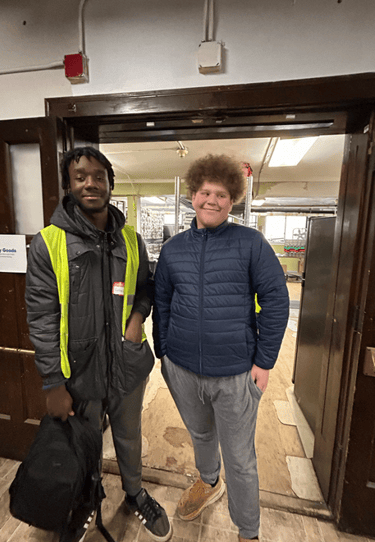

Me and my colleague standing inside the food warehouse of CareForReal
In November of 2024, me and one of my colleagues volunteered at CareForReal. It is a nonprofit organization that provides services such as food and clothing distribution to low-income neighbors in Edgewater and Rodgers Park.
We worked primarily in food service, were we delivered customer service to a constant flow of clients, addressing the unique needs of diverse families while ensuring timely and accurate food order preparations. Some families had preferences for a certain meat, and others would need certain vitamins, or larger orders if the household was particularly big. It was quite overwhelming at times, as I needed to constantly be on my feet and memorize multiple orders when traveling to and from the food pantry were we prepare the orders. On top of that, since the seasons were nearing winter, it was very cold outside.
On particularly busy days, it was quite taxing both physically and mentally. But honestly, these feeling weren't really discouraging for me. They helped me reflect upon my character, which boosted my passion and pride. I saw myself as a person who would help others regardless of how challenging it was. Even when I was offered breaks, I refused to take them to help the team reach all families as fast as possible. It made me feel strong, and proud of what I was doing, which encouraged me to volunteer here more.
Even though I initially volunteered at CareForReal for my required 3-hour service project for my Global Politics class, I continued going throughout November for a much larger purpose. Knowing that my contributions helped put food on the table for those struggling, and seeing the smiles of grateful families, was genuinely touching to me. I felt more connected to my surrounding communities than ever, and this resonated with me greatly. Moreover, I saw myself grow to become a more empathetic person, and alert to issues that plague Chicago, such as food insecurity.


